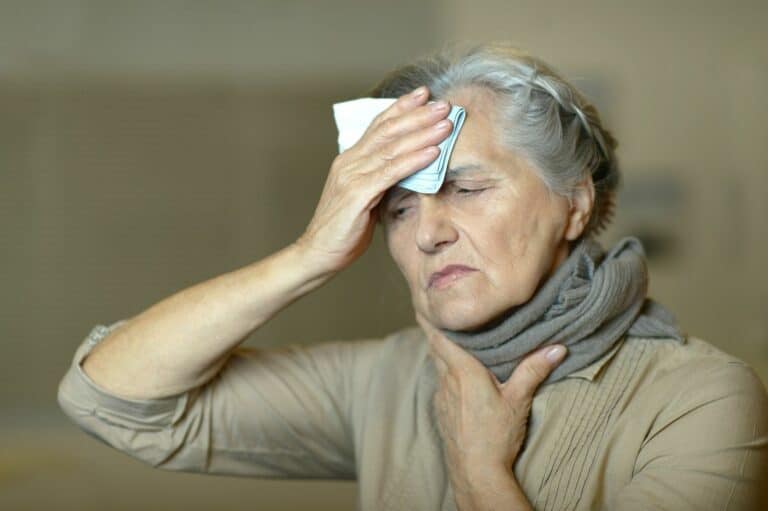COVID-19 isn’t the only serious infection that seniors need to watch out for. RSV is spreading, and seniors have a particularly high risk of catching RSV and having severe symptoms if they get it. According to the CDC, between 60,000 and 120,000 seniors end up hospitalized with RSV every year. There are vaccines available that can help prevent RSV infection and lessen the severity of symptoms for seniors who do get it. Seniors who are over the age of 65, have COPD or respiratory illness, and seniors who have underlying medical conditions should talk to their doctors about getting vaccinated. Home care providers could add assistance to seniors when they are not well.
Respiratory syncytial virus (RSV) is a common virus that primarily affects infants and young children, but it can also pose a serious threat to seniors. RSV is a leading cause of respiratory illness in people of all ages, and older adults, especially those with weakened immune systems or underlying health conditions, are more susceptible to severe complications.
Here’s what seniors should know about RSV to protect themselves and maintain their well-being.
What Is RSV?
Respiratory syncytial virus is a highly contagious virus that targets the respiratory tract, usually in babies or children but also seniors. It can cause symptoms ranging from mild cold-like symptoms to severe respiratory distress. Age is a risk factor for RSV, so seniors who are over 70 are particularly vulnerable to this infection.
Symptoms Of RSV In Seniors
The symptoms of RSV can be the same as other illnesses like COVID-19 or the flu, so it can be difficult to know what illness is causing the symptoms. If your senior parent has symptoms like cough, shortness of breath, wheezing, fever, and fatigue they should be seen by a doctor immediately to determine if they have RSV and get treatment.
Seniors With Health Problems Have A Higher Risk
Seniors with underlying health conditions, such as chronic lung disease, heart disease, or a weakened immune system, are at a higher risk of developing severe complications from RSV. Seniors who know that they are at risk should take extra precautions, such as avoiding crowds, wearing a mask, and isolating if they feel sick.
How It Spreads
RSV spreads through respiratory droplets when an infected person coughs or sneezes. Seniors should be cautious in crowded places, especially during the peak RSV season, which typically occurs in the fall and winter. Regular handwashing, avoiding close contact with sick individuals, and wearing a mask can help prevent infection. Seniors with home care can stay home while a home care provider runs errands, shops, and does all the public running around that needs to be done. That will lower their risk of infection.

Don’t Wait To Get Treated
Seniors having shortness of breath, a hard time breathing, or other respiratory problems should not wait to get treatment. Go to the emergency room or an urgent care. RSV can become serious very quickly, and getting treated at the first sign of symptoms can save lives.
Isolate To Prevent Spreading The Illness
Seniors diagnosed with RSV should isolate at home until they have been cleared to go out by a doctor. While it’s not fun to isolate, home care can make sure that seniors have everything they need at home. Seniors can reduce their exposure to additional illnesses and keep others safe by staying home until they are better.
Source: https://www.cdc.gov/rsv/high-risk/older-adults.html
If you are considering hiring a Home Care Service that is dedicated to the senior care market, contact 24/7 Coastal Contact today at (251) 260-0226.
Let us show you how and why we are different from any other service you may have tried in the past. Our team approach is the standard that sets us apart from the rest.
Prior to establishing 24/7 Coastal Contact, Ms. King worked for 30 years in the health care industry. Her experience began providing direct patient care. Eventually, she transitioned into home care and home infusion, then acquired her HCS-D certification as a Home Health specialty coder where she learned about the administrative burden facing Home Health and Home Care providers.
It became clear that after-hours customer service was a major toll home care industry and it was with this need in mind that 24/7 Coastal Contact was founded. Since 2018, 24/7 Coastal Contact has grown explosively. Now, we provide service to over 40 agencies in over 24 states with a 95% retention of service rate.
- How Home Care Helps Seniors Improve Their Diet While Aging in Place - April 15, 2025
- Celebrating Ebony & Her 3-Year Workiversary - April 4, 2025
- After-Hours Answering Service Provides Cost-Effective Customer Service 24/7 - April 1, 2025




